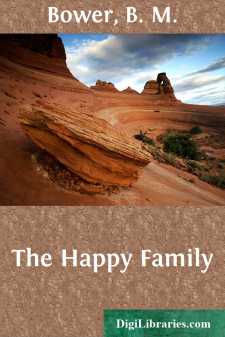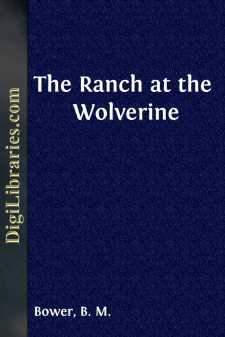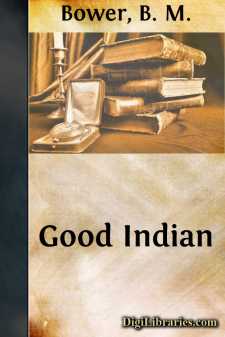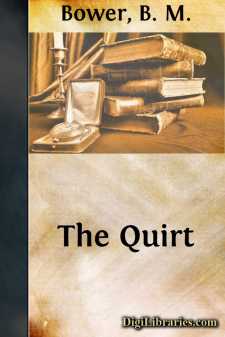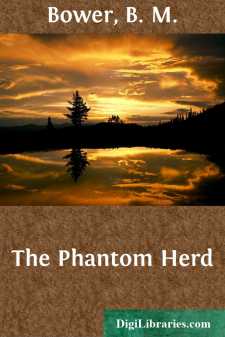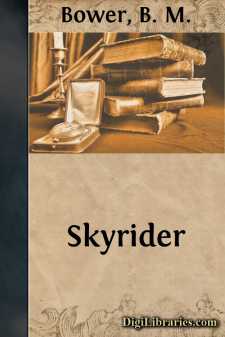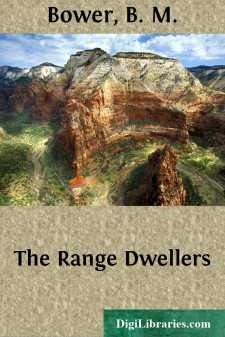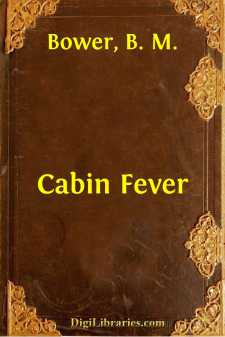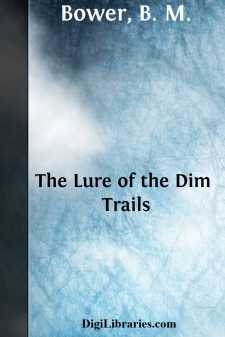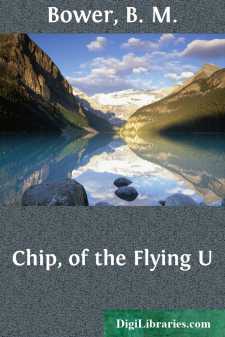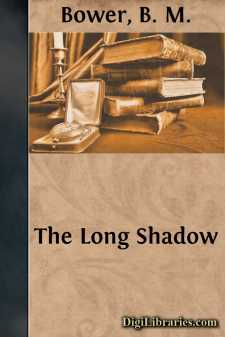Categories
- Antiques & Collectibles 13
- Architecture 36
- Art 48
- Bibles 22
- Biography & Autobiography 813
- Body, Mind & Spirit 142
- Business & Economics 28
- Children's Books 17
- Children's Fiction 14
- Computers 4
- Cooking 94
- Crafts & Hobbies 4
- Drama 346
- Education 46
- Family & Relationships 57
- Fiction 11829
- Games 19
- Gardening 17
- Health & Fitness 34
- History 1377
- House & Home 1
- Humor 147
- Juvenile Fiction 1873
- Juvenile Nonfiction 202
- Language Arts & Disciplines 88
- Law 16
- Literary Collections 686
- Literary Criticism 179
- Mathematics 13
- Medical 41
- Music 40
- Nature 179
- Non-Classifiable 1768
- Performing Arts 7
- Periodicals 1453
- Philosophy 64
- Photography 2
- Poetry 896
- Political Science 203
- Psychology 42
- Reference 154
- Religion 513
- Science 126
- Self-Help 84
- Social Science 81
- Sports & Recreation 34
- Study Aids 3
- Technology & Engineering 59
- Transportation 23
- Travel 463
- True Crime 29
The Happy Family
by: B. M. Bower
Description:
Excerpt
ANANIAS GREEN
Pink, because he knew well the country and because Irish, who also knew it well, refused pointblank to go into it again even as a rep, rode alone except for his horses down into the range of the Rocking R. General roundup was about to start, down that way, and there was stock bought by the Flying U which ranged north of the Bear Paws.
It so happened that the owner of the Rocking R was entertaining a party of friends at the ranch; it also happened that the friends were quite new to the West and its ways, and they were intensely interested in all pertaining thereto. Pink gathered that much from the crew, besides observing much for himself. Hence what follows after.
Sherwood Branciforte was down in the blacksmith shop at the Rocking R, watching one Andy Green hammer a spur-shank straight. Andy was what he himself called a tamer of wild ones, and he was hard upon his riding gear. Sherwood had that morning watched with much admiration the bending of that same spur-shank, and his respect for Andy was beautiful to behold.
"Lord, but this is a big, wild country," he was saying enthusiastically, "and the people in it are big and—"
"Wild," supplied Andy. "Yes, you've just about got us sized up correct." He went on hammering, and humming under his breath, and thinking that, while admiration is all right in its time and place, it is sometimes a bit wearisome.
"Oh, but I didn't mean that," the young man protested. "What I meant was breezy and picturesque. Things can happen, out here. Life and men don't run in grooves."
"No, nor horses," assented Andy. "Leastways, not in oiled ones." He was remembering how that spur-shank had become bent.
"You did some magnificent riding, this morning. By Jove! I've never seen anything like it. Strange that one can come out here into a part of the country absolutely new and raw, and see things—"
"Oh, it ain't so raw as you might think," Andy defended jealously, "nor yet new."
"Of course it is new! A commonwealth in the making. You can't," he asserted triumphantly, "point to anything man-made that existed a hundred years ago; scarcely fifty, either. Your civilization is yet in the cradle—a lusty infant, and a—er—vociferous one, but still an infant in swaddling clothes." Sherwood Branciforte had given lectures before the Y.M.C.A. of his home town, and young ladies had spoken of him as "gifted," and he had come to hear of it, and to believe.
Andy Green squinted at the shank before he made reply. Andy, also, was "gifted," in his modest Western way.
"A country that can now and then show the papers for a civilization old as the Phenixes of Egypt," he said, in a drawling tone that was absolutely convincing, "ain't what I'd call raw." He decided that a little more hammering right next the rowel was necessary, and bent over the anvil solicitously. Even the self-complacency of Sherwood Branciforte could not fail to note his utter indifference to the presence and opinions of his companion. Branciforte was accustomed to disputation at times—even to enmity; but not to indifference. He blinked. "My dear fellow, do you realize what it is that statement might seem to imply?" he queried haughtily.
Andy, being a cowpuncher of the brand known as a "real," objected strongly both to the term and the tone. He stood up and stared down at the other disapprovingly. "I don't as a general thing find myself guilty of talking in my sleep," he retorted, "and I'm prepared to let anything I say stand till the next throw. We may be some vociferous, out here twixt the Mississippi and the Rockies, but we ain't no infant-in-the-cradle, Mister. We had civilization here when the Pilgrim Fathers' rock wasn't nothing but a pebble to let fly at the birds!"
"Indeed!" fleered Sherwood Branciforte, in a voice which gave much intangible insult to one's intelligence.
Andy clicked his teeth together, which was a symptom it were well for the other to recognize but did not. Then Andy smiled, which was another symptom. He fingered the spur absently, laid it down and reached, with the gesture that betrays the act as having become second nature, for his papers and tobacco sack.
"Uh course, you mean all right, and you ain't none to blame for what you don't know, but you're talking wild and scattering. When you stand up and tell me I can't point to nothing man-made that's fifty years old, or a hundred, you make me feel sorry for yuh. I can take you to something—or I've seen something—that's older than swearing; and I reckon that art goes back to when men wore their hair long and a sheep-pelt was called ample for dress occasions."
"Are you crazy, man?" Sherwood Branciforte exclaimed incredulously.
"Not what you can notice. You wait whilst I explain. Once last fall I was riding by my high lonesome away down next the river, when my horse went lame on me from slipping on a shale bank, and I was set afoot. Uh course, you being plumb ignorant of our picturesque life, you don't half know all that might signify to imply." This last in open imitation of Branciforte. "It implies that I was in one hell of a fix, to put it elegant. I was sixty miles from anywhere, and them sixty half the time standing on end and lapping over on themselves. That there is down where old mama Nature gave full swing to a morbid hankering after doing things unconventional. Result is, that it's about as ungodly a mixture of nightmare scenery as this old world can show up; and I've ambled around considerable and am in a position to pass judgment.
"So there I was, and I wasn't in no mood to view the beauties uh nature to speak of; for instance, I didn't admire the clouds sailing around promiscous in the sky, nor anything like that. I was high and dry and the walking was about as poor as I ever seen; and my boots was high-heel and rubbed blisters before I'd covered a mile of that acrobatic territory. I wanted water, and I wanted it bad. Before I got it I wanted it a heap worse." He stopped, cupped his slim fingers around a match-blaze, and Branciforte sat closer. He did not know what was coming, but the manner of the indifferent narrator was compelling. He almost forgot the point at issue in the adventure.
"Along about dark, I camped for the night under a big, bare-faced cliff that was about as homelike and inviting as a charitable institution, and made a bluff at sleeping and cussed my bum luck in a way that wasn't any bluff. At sun-up I rose and mooched on." His cigarette needed another match and he searched his pockets for one.
"What about the—whatever it was you started to tell me?" urged Branciforte, grown impatient.
Andy looked him over calmly. "You've lived in ignorance for about thirty years or so—giving a rough guess at your age; I reckon you can stand another five minutes. As I was saying, I wandered around like a dogy when it's first turned loose on the range and is trying to find the old, familiar barn-yard and the skim-milk bucket. And like the dogy, I didn't run across anything that looked natural or inviting. All that day I perambulated over them hills, and I will say I wasn't enjoying the stroll none. You're right when you say things can happen, out here. There's some things it's just as well they don't happen too frequent, and getting lost and afoot in the Bad-lands is one.
"That afternoon I dragged myself up to the edge of a deep coulee and looked over to see if there was any way of getting down. There was a bright green streak down there that couldn't mean nothing but water, at that time of year; this was last fall. And over beyond, I could see the river that I'd went and lost. I looked and looked, but the walls looked straight as a Boston's man's pedigree. And then the sun come out from behind a cloud and lit up a spot that made me forget for a minute that I was thirsty as a dog and near starved besides.
"I was looking down on the ruins—and yet it was near perfect—of an old castle. Every stone stood out that clear and distinct I could have counted 'em. There was a tower at one end, partly fell to pieces but yet enough left to easy tell what it was. I could see it had kinda loop-holes in it. There was an open place where I took it the main entrance had used to be; what I'd call the official entrance. But there was other entrances besides, and some of 'em was made by time and hard weather. There was what looked like a what-you-may-call-'em—a ditch thing, yuh mind, running around my side of it, and a bridge business. Uh course, it was all needing repairs bad, and part of it yuh needed to use your imagination on. I laid there for quite a spell looking it over and wondering how the dickens it come to be way down there. It didn't look to me like it ought to be there at all, but in a school geography or a history where the chapter is on historic and prehistoric hangouts uh the heathen."
"The deuce! A castle in the Bad-lands!" ejaculated Branciforte.
"That's what it was, all right. I found a trail it would make a mountain sheep seasick to follow, and I got down into the coulee. It was lonesome as sin, and spooky; but there was a spring close by, and a creek running from it; and what is a treat in that part uh the country, it was good drinking and didn't have neither alkali nor sulphur nor mineral in it. It was just straight water, and you can gamble I filled up on it a-plenty. Then I shot a rabbit or two that was hanging out around the ruins, and camped there till next day, when I found a pass out, and got my bearings by the river and come on into camp. So when you throw slurs on our plumb newness and shininess, I've got the cards to call yuh. That castle wasn't built last summer, Mister. And whoever did build it was some civilized. So there yuh are."
Andy took a last, lingering pull at the cigarette stub, flung it into the backened forge, and picked up the spur. He settled his hat on his head at its accustomed don't-give-a-darn tilt, and started for the door and the sunlight.
"Oh, but say! didn't you find out anything about it afterwards? There must have been something—"
"If it's relics uh the dim and musty past yuh mean, there was; relics to burn. I kicked up specimens of ancient dishes, and truck like that, while I was prowling around for fire-wood. And inside the castle, in what I reckon was used for the main hall, I run acrost a skeleton. That is, part of one. I don't believe it was all there, though."
"But, man alive, why haven't you made use of a discovery like that?" Branciforte followed him out, lighting his pipe with fingers that trembled. "Don't you realize what a thing like that means?"
Andy turned and smiled lazily down at him. "At the time I was there, I was all took up with the idea uh getting home. I couldn't eat skeletons, Mister, nor yet the remains uh prehistoric dishes. And I didn't run acrost no money, nor no plan marked up with crosses where you're supposed to do your excavating for treasure. It wasn't nothing, that I could see, for a man to starve to death while he examined it thorough. And so far as I know there ain't any record of it. I never heard no one mention building it, anyhow." He stooped and adjusted the spur to his heel to see if it were quite right, and went off to the stable humming under his breath.
Branciforte stood at the door of the blacksmith shop and gazed after him, puffing meditatively at his pipe. "Lord! the ignorance of these Western folk! To run upon a find like that, and to think it less important than getting home in time for supper. To let a discovery like that lie forgotten, a mere incident in a day's travel! That fellow thinks more, right now, about his horse going lame and himself raising blisters on his heels, than of—Jove, what ignorance! He—he couldn't eat the skeleton or the dishes! Jerusalem!" Branciforte knocked his pipe gently against the door-casing, put in into his coat pocket and hurried to the house to hunt up the others and tell them what he had heard.
That night the roundup pulled in to the home ranch.
The visitors, headed by their host, swooped down upon the roundup wagons just when the boys were gathered together for a cigarette or two apiece and a little talk before rolling in. There was no night-guarding to do, and trouble winged afar. Sherwood Branciforte hunted out Andy Green where he lay at ease with head and shoulders propped against a wheel of the bed-wagon and gossipped with Pink and a few others.
"Look here, Green," he said in a voice to arrest the attention of the whole camp, "I wish you'd tell the others that tale you told me this afternoon—about that ruined castle down in the hills. Mason, here, is a newspaper man; he scents a story for his paper. And the rest refuse to believe a word I say."
"I'd hate to have a rep like that, Mr. Branciforte," Andy said commiseratingly, and turned his big, honest gray eyes to where stood the women—two breezy young persons with sleeves rolled to tanned elbows and cowboy hats of the musical comedy brand. Also they had gay silk handkerchiefs knotted picturesquely around their throats. There was another, a giggly, gurgly lady with gray hair fluffed up into a pompadour. You know the sort. She was the kind who refuses to grow old, and so merely grows imbecile.
"Do tell us, Mr. Green," this young old lady urged, displaying much gold by her smile. "It sounds so romantic."
"It's funny you never mentioned it to any of us," put in the "old man" suspiciously.
Andy pulled himself up into a more decorous position, and turned his eyes towards his boss. "I never knew yuh took any interest in relic-hunting," he explained mildly.
"Sherwood says you found a skeleton!" said the young old lady, shuddering pleasurably.
"Yes, I did find one—or part of one," Andy admitted reluctantly.
"What were the relics of pottery like?" demanded one of the cowboy-hatted girls, as if she meant to test him. "I do some collecting of that sort of thing."
Andy threw away his cigarette, and with it all compunction. "Well, I wasn't so much interested in the dishes as in getting something to eat," he apologized. "I saw several different kinds. One was a big, awkward looking thing and was pretty heavy, and had straight sides. Then I come across one or two more that was ornamented some. One had what looked like a fish on it, and the other I couldn't make out very well. They didn't look to be worth much, none of 'em."
"Green," said his employer steadily, "was there such a place?"
Andy returned his look honestly. "There was, and there is yet, I guess," he asserted. "I'll tell you how you can find it and what it's like—if yuh doubt my words." He glanced around and found every man, including the cook, listening intently. He picked a blade of new grass and began splitting it into tiny threads. The host found boxes for the women to sit upon, and the men sat down upon the grass.
"Before I come here to work, I was riding for the Circle C. One day I was riding away down in the Bad-lands alone and my horse slipped in some shale rock and went lame; strained his shoulder so I couldn't ride him. That put me afoot, and climbing up and down them hills I lost my bearings and didn't know where I was at for a day or two. I wandered around aimless, and got into a strip uh country that was new to me and plumb lonesome and wild. "That second day is when I happened across this ruin. I was looking down into a deep, shut-in coulee, hunting water, when the sun come out and shone straight on to this place. It was right down under me; a stone ruin, with a tower on one end and kinda tumbled down so it wasn't so awful high—the tower wasn't. There was a—a—"
"Moat," Branciforte suggested.
"That's the word—a moat around it, and a bridge that was just about gone to pieces. It had loopholes, like the pictures of castles, and a—"
"Battlement?" ventured one of the musical-comedy cowgirls.
Andy had not meant to say battlement; of a truth, his conception of battlements was extremely hazy, but he caught up the word and warmed to the subject. "Battlement? well I should guess yes! There was about as elegant a battlement as I'd want to see anywhere. It was sure a peach. It was—" he hesitated for a fraction of a second. "It was high as the tower, and it had figures carved all over it; them kind that looks like kid-drawing in school, with bows and arrows stuck out in front of 'em, threatening."
"Not the old Greek!" exclaimed one of the girls in a little, breathless voice.
"I couldn't say as to that," Andy made guarded reply. "I never made no special study of them things. But they was sure old. And—"
"About how large was the castle?" put in the man who wrote things. "How many rooms, say?"
"I'd hate to give a guess at the size. I didn't step it off, and I'm a punk guesser. The rooms I didn't count. I only explored around in the main hall, like, a little. But it got dark early, down in there, and I didn't have no matches to waste. And next morning I started right out at sun-up to find the way home. No, I never counted the rooms, and if I had, the chances are I'd have likely counted the same one more'n once; to count them rooms would take an expert, which I ain't—not at counting. I don't reckon, though, that there was so awful many. Anyway, not more than fifteen or twenty. But as I say, I couldn't rightly make a guess, even; or I'd hate to. Ruins don't interest me much, though I was kinda surprised to run acrost that one, all right, and I'm willing to gamble there was warm and exciting times down there when the place was in running order. I'd kinda like to have been down there then. Last fall, though, there wasn't nothing to get excited over, except getting out uh there."
"A castle away out here! Just think, good people, what that means! Romance, adventure and scientific discoveries! We must go right down there and explore the place. Why can't we start at once—in the morning? This gentleman can guide us to the place, and—"
"It ain't easy going," Andy remarked, conscientiously. "It's pretty rough; some places, you'd have to walk and lead your horses."
They swept aside the discouragement.
"We'd need pick and shovels, and men to dig," cried one enthusiast. "Uncle Peter can lend us some of his men. There may be treasure to unearth. There may be anything that is wonderful and mysterious. Get busy, Uncle Peter, and get your outfit together; you've boasted that a roundup can beat the army in getting under way quickly, now let us have a practical demonstration. We want to start by six o'clock—all of us, with a cook and four or five men to do the excavating. Bring it to pass!" It was the voice of the girl whom her friends spoke of as "The life of the party;" the voice of the-girl-who-does-things.
"It's sixty-five miles from here, good and strong—and mostly up and down," put in Andy.
"'Quoth the raven,'" mocked the-girl-who-does-things. "We are prepared to face the ups-and-downs. Do we start at six, Uncle Peter?"
Uncle Peter glanced sideways at the roundup boss. To bring it to pass, he would be obliged to impress the roundup cook and part of the crew. It was breaking an unwritten law of the rangeland, and worse, it was doing something unbusiness-like and foolish. But not even the owner of the Rocking R may withstand the pleading of a pretty woman. Uncle Peter squirmed, but he promised:
"We start at six; earlier if you say so."
The roundup boss gave his employer a look of disgust and walked away; the crew took it that he went off to some secluded place to swear.
Thereafter there was much discussion of w


